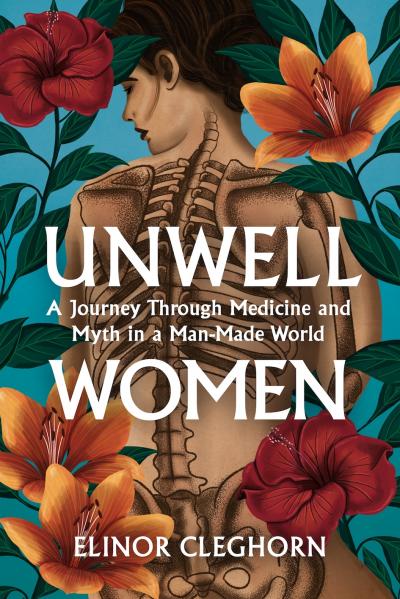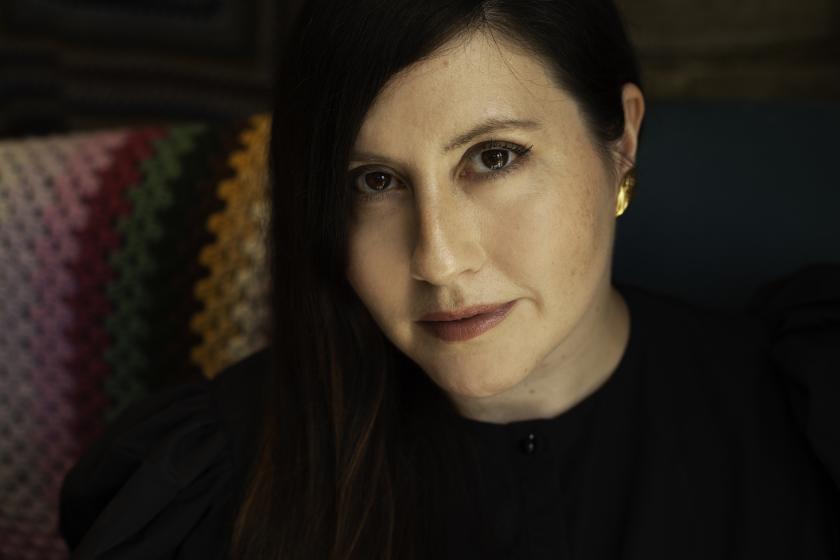I’m one of the women in the pages of Elinor Cleghorn’s new history of the female body, Unwell Women: A Journey Through Medicine and Myth in a Man-Made World. I’ve dealt with strange chronic pain throughout my early twenties. Still, I’ve always felt like I could articulate fairly clearly what I felt was wrong with my body, at least in my own words, if not in a medical sense, and have been lucky enough to see a series of compassionate GPs, gynaecologists and physiotherapists (all themselves women). Cleghorn’s suggestion that “the answers reside in our bodies, and in the histories our bodies have always been writing” seems to have been true for me.
But speaking to other women who have experienced similar problems, I’ve realised that it is not as easy for everyone. Friends and other women often struggle to talk about what is wrong with their bodies. They know that their unwellness is non-normative and that there may not yet be the medical words to express their experience in a way that seems socially acceptable.
Cleghorn’s Unwell Women writes such difficult bodily experiences into unquestionable existence clearly and succinctly. She comes to the topic as an academic and cultural historian, and her book articulates the pain of the unexplained health conditions experienced by women with refreshing clarity, tracing the ways this pain is written into a patriarchal narrative. The path she takes through medical history is firm and convincing, charting the suppression of women’s bodies and experiences from Roman times to the present day.
 She moves through a diverse range of issues that have affected women’s bodies, from the balancing of the four humours, witchcraft, hysteria, and sterilisation during the Holocaust to present-day “mysterious” conditions that lack detailed medical research, like endometriosis and vaginismus. Particularly harrowing are accounts of the forced sterilisation of Jewish and Roma women by “gynaecologist” Carl Clauberg during the Holocaust. Cleghorn’s own account of her experience of lupus is revealing, too. Reading this book, even as a woman with similar experiences, I found a lot of the stories came as a shock.
She moves through a diverse range of issues that have affected women’s bodies, from the balancing of the four humours, witchcraft, hysteria, and sterilisation during the Holocaust to present-day “mysterious” conditions that lack detailed medical research, like endometriosis and vaginismus. Particularly harrowing are accounts of the forced sterilisation of Jewish and Roma women by “gynaecologist” Carl Clauberg during the Holocaust. Cleghorn’s own account of her experience of lupus is revealing, too. Reading this book, even as a woman with similar experiences, I found a lot of the stories came as a shock.
Cleghorn provides a clear explanation of the ways in which female experience has been marginalised and she also takes care to encompass the lives of a diverse range of women, not just focusing on a Westernised narrative of health. The book is validating to read because it gives a language to conditions which we often find nigh on impossible to describe, as well as clearly explaining a history of bodily oppression. But it is also intensely informative for those who (unsurprisingly, given the lack of education on the subject) may not actually know how to approach women’s health. References to feminist authors and activists like Charlotte Perkins Gilman are not obtuse but helpfully signpost the structure. Cleghorn’s book is in some ways comparable to Netflix’s Sex Education in terms of its educational focus, but with the cultural and medical context that the show lacks.
Cleghorn argues that speaking out about our bodies will help to redress the imbalance in medical culture. To do so “is profoundly feminist. It is generous and courageous to revisit and recall the trauma of pain”. She advocates, then, for countering silencing with a new language of the body, turning ourselves inside out and permitting our physicality to speak rather than letting the pre-existing medical narrative shape how we and others understand our health: “the truth about our illnesses and diseases is in our own bodies. Medicine has to let us translate the languages they are trying to speak.”
But in arguing that, “feminism has given us our bodies back”, Cleghorn assumes that women actually have full access to the language of their own form. This is where Unwell Women falters slightly. “The lives of unwell women depend on medicine learning to listen”, Cleghorn writes, yet this assumes that women have access to a language adequate to the expression of their experiences. It is trite to insist that women have completely reclaimed the word and their own bodies to the extent that we can simply speak our suffering and be heard. Articulation is still very difficult when a framework doesn’t always exist in which to conceptualise pain, and women, especially those who experience further identity-based discrimination in medicine, may not always be able to make their bodies and voices speak in the way they wish to when confronted by a doctor who appears unable or unwilling to understand.
Nevertheless, Cleghorn is undoubtedly right that “the cultural geography of women’s chronic ill-health is shifting”, and her own clear account contributes to this change in a significant way. She is not wrong when she writes that “we are the most reliable narrators of what is happening in our own bodies”. Still, is it possible to be wholly reliable in a language that is not yet fully one’s own? Women may struggle to narrate what is happening to their bodies without a systematic structure in place through which to receive and share this knowledge. Sometimes, simple speech is not as easy as it seems. But we must hope for the shift that Cleghorn sees to continue, one which her own book makes steady steps towards.
- Unwell Women: A Journey Through Medicine and Myth in a Man-Made World by Elinor Cleghorn (W&N, £16.99)
- More book reviews and features on theartsdesk















Add comment